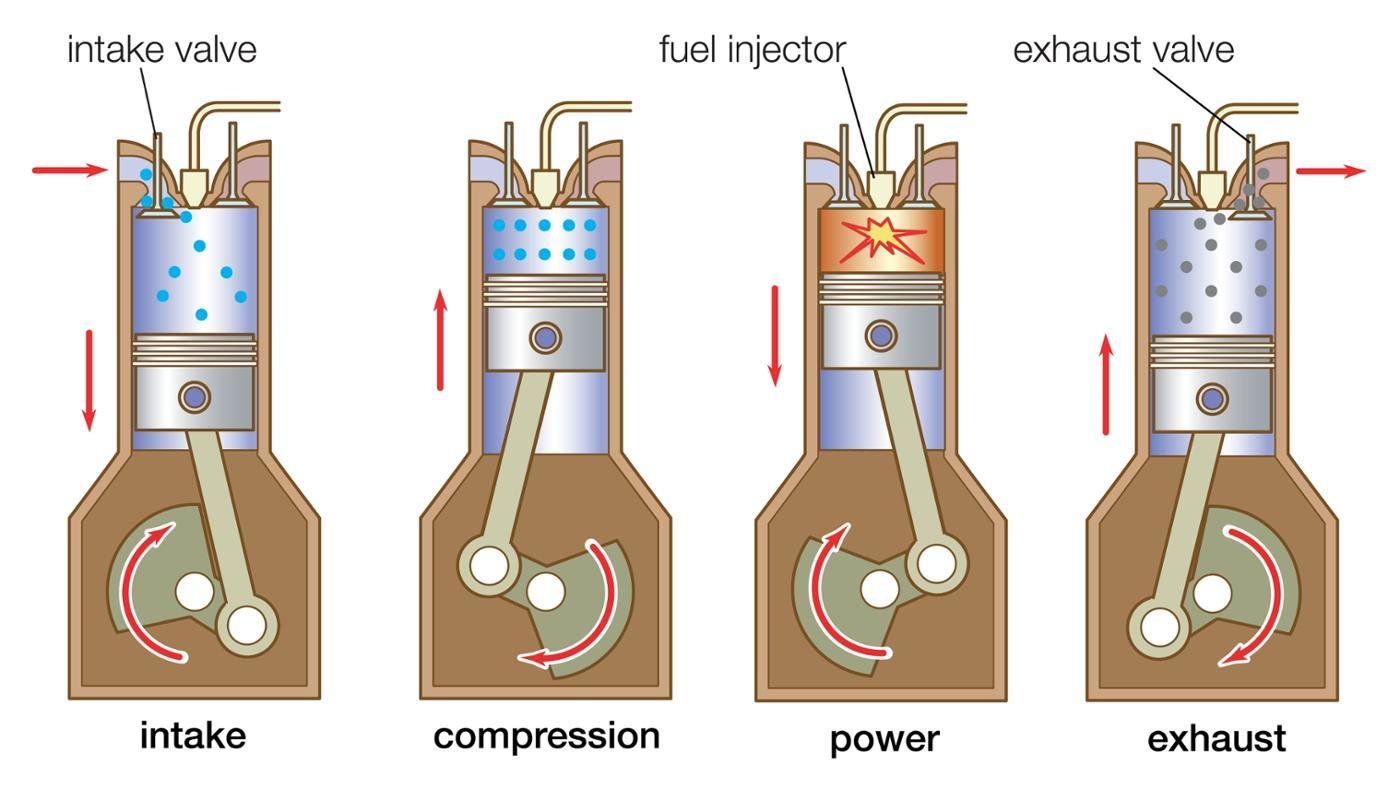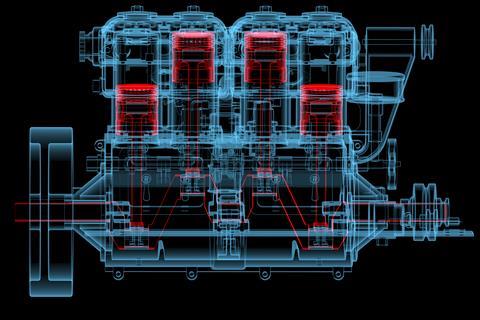The Impact of Cutting-edge Engine Technologies on Energy Effectiveness and Environmental Sustainability
In the realm of transportation and industrial equipment, the constant pursuit for improved energy efficiency and minimized environmental impact has actually led to substantial improvements in engine innovations. From the gradual change towards electrical and hybrid systems to the combination of turbocharging for boosted effectiveness, the landscape of engines is advancing quickly.
Advancement of Engine Technologies
The development of engine technologies over the decades has actually been marked by continuous development and refinement in search of boosted efficiency and effectiveness. From the very early days of internal combustion engines to the sophisticated crossbreed and electrical powertrains these days, the advancement of engine technologies has been driven by a relentless pursuit for enhanced fuel efficiency and reduced exhausts.
One considerable milestone in this evolution was the advancement of turbocharging and direct injection systems, which considerably improved engine power result while enhancing fuel efficiency. These innovations enabled smaller sized, a lot more lightweight engines that could deliver the performance of larger ones without compromising on performance.
Moreover, improvements in materials scientific research have brought about the extensive fostering of light-weight materials such as aluminum and carbon fiber in engine construction. This has not just decreased total automobile weight but has also improved engine performance by reducing energy losses related to inertia and friction.
Benefits of Electric and Hybrid Solutions
With the expanding emphasis on sustainability and energy performance, what benefits do electrical and hybrid systems use in the realm of engine technologies? Electric and hybrid systems existing various benefits that add to a much more sustainable and energy-efficient future. One of the key advantages is the significant reduction in greenhouse gas discharges contrasted to conventional inner combustion engines. Electric vehicles create zero tailpipe discharges, causing boosted air top quality and lowered ecological influence. In addition, electrical and hybrid systems are more energy-efficient, transforming a greater portion of stored energy right into propulsion contrasted to conventional engines. This performance causes reduced power consumption and operating expenses over the automobile's lifetime. Electrical vehicles offer regenerative stopping systems that keep and record energy typically lost during stopping, additionally improving energy efficiency (engines for africa). Hybrid systems combine the advantages of electrical propulsion with the adaptability of a combustion engine, providing prolonged decreasing and driving arrays array anxiousness for customers transitioning to electrical cars. Overall, electrical and hybrid systems play a critical function in advancing energy effectiveness and ecological sustainability in the transport market.
Turbocharging for Improved Performance
Ingenious engine technologies like hybrid and electrical systems have led the way for developments in lorry effectiveness, with turbocharging emerging as an essential technique for boosting overall efficiency and sustainability. Turbocharging works by making use of a wind turbine to compel even more air right into the combustion chamber, permitting far better gas combustion and boosted power output without a considerable boost in engine dimension. This procedure, referred to as forced induction, makes it possible for smaller sized, extra fuel-efficient engines to create power degrees similar to larger ones. By making best use of the performance of the burning procedure, turbocharged engines can attain enhanced gas economy and decreased discharges, adding to environmental sustainability. In addition, turbocharging enhances engine responsiveness, supplying chauffeurs with an extra vibrant driving experience. The prevalent fostering of turbocharged engines in both fuel and diesel vehicles demonstrates their efficiency in balancing efficiency, performance, and ecological impact. As vehicle manufacturers remain to refine turbocharging innovation, its duty in promoting power performance and sustainability in the transportation industry is expected to expand further.
Utilizing Different Gas
Harnessing alternate fuels presents an encouraging avenue for reducing carbon emissions and branching out the energy sources utilized useful content in transport. As the world aims to deal with environment modification and reduce dependency on nonrenewable fuel sources, alternate gas have actually acquired considerable focus for their prospective ecological and economic benefits.
Biofuels, such as ethanol and read here biodiesel, are originated from eco-friendly resources like algae, corn, and sugarcane, providing a cleaner burning choice to standard gas and diesel. These fuels can be blended with existing oil gas or utilized in specialized engines, offering a pathway to lower greenhouse gas emissions and enhance air top quality.
Moreover, hydrogen gas cells have actually emerged as a promising technology for zero-emission transportation. engines for africa. By transforming hydrogen gas right into electrical power to power electric motors, gas cell vehicles create just water vapor as a byproduct, eliminating unsafe tailpipe emissions entirely
Along with reducing carbon emissions, different fuels can also boost energy security by branching out the gas mix and lowering dependence on imported oil. Embracing alternative fuels in transportation is an essential action in the direction of accomplishing an extra sustainable and environmentally friendly future.

Ecological Advantages and Future Leads
The environmental advantages of different gas and their capacity for long-term sustainability are vital factors to consider in the shift towards cleaner power resources. Alternative gas, such as biofuels, hydrogen, and power, deal significant environmental benefits compared to typical fossil fuels. These gas generate lower levels of greenhouse gas emissions, reducing air contamination and mitigating climate change influences. Additionally, alternate fuels can help expand power resources, improving power safety and security and decreasing dependence on limited sources.
The future prospects for alternative gas in the transportation market are encouraging. Developments in innovation continue to boost the effectiveness and affordability of alternate gas vehicles, making them extra accessible to customers. Governments around the globe are additionally implementing policies to incentivize the adoption of different gas, further driving their growth. As research and advancement initiatives expand, the potential for even greener and a lot more sustainable fuel choices raises, leading the way for a cleaner and much more eco-friendly transportation industry. By accepting cutting-edge modern technologies and different fuels, the course in the direction of an extra lasting future ends up being increasingly attainable.

Final Thought
In final thought, ingenious engine innovations have actually played an important duty in boosting energy performance and advertising environmental sustainability. The evolution investigate this site of engine innovations, fostering of electric and hybrid systems, application of turbocharging, and expedition of alternate gas have all added to increasing and reducing emissions performance.
In the realm of transport and industrial equipment, the constant pursuit for improved energy effectiveness and decreased environmental influence has actually led to significant innovations in engine innovations. Turbocharging works by making use of a wind turbine to compel even more air into the combustion chamber, enabling for far better fuel combustion and raised power result without a substantial rise in engine size. By maximizing the efficiency of the burning procedure, turbocharged engines can accomplish improved gas economic climate and reduced exhausts, contributing to ecological sustainability. Alternate fuels, such as biofuels, hydrogen, and power, offer significant ecological benefits contrasted to traditional fossil gas. The evolution of engine modern technologies, adoption of electrical and hybrid systems, application of turbocharging, and exploration of different fuels have all added to decreasing emissions and boosting effectiveness.